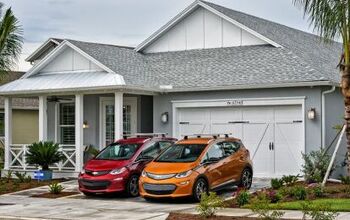Are Electric Cars Really Helping the Environment?
A recent study by the Keck School of Medicine of USC provides new insights into the potential benefits of electric vehicle (EV) adoption. The research, published in the Science of the Total Environment journal, presents the first real-world data linking EVs to reductions in air pollution and respiratory issues. This study marks a significant step in understanding the impact of electric cars on public health and the environment.
Understanding the Impact: Research Methodology
The researchers used multiple data sources to conduct their analysis. They gathered information on the total number of zero-emission vehicles (ZEVs), which include battery electric, plug-in hybrid, and hydrogen fuel cell cars, from the California Department of Motor Vehicles. The team also analyzed air pollution levels, focusing on nitrogen dioxide (NO2), and the rates of asthma-related emergency room visits across various California zip codes from 2013 to 2019.
Findings: Reduced Pollution and Health Risks
The results revealed a clear pattern: As the adoption of ZEVs increased within a zip code, there was a notable decline in local air pollution and asthma-related emergency room visits. Specifically, for every additional 20 ZEVs per 1,000 people, there was a 3.2 percent reduction in the rate of asthma-related emergency visits. Furthermore, the study showed a modest decrease in NO2 levels, a pollutant closely linked to traffic emissions.
Socioeconomic Disparities in ZEV Adoption
However, the study uncovered an adoption gap in ZEVs, with slower uptake in lower-resource areas. This gap highlights a need for policies that promote equitable access to clean transportation, particularly in communities disproportionately affected by pollution and related health issues.
Future Research and Broader Implications
While the study's findings are promising, the researchers acknowledge that more investigation is needed. Future research should explore additional pollutants, other vehicle classes, and broader environmental impacts of ZEVs, including the emissions from their production and disposal.
Conclusion
The study by the Keck School of Medicine of USC offers another case for the adoption of electric vehicles, not just for environmental reasons but also for public health benefits. It underscores the importance of considering local actions in the global fight against climate change and highlights the potential for significant health improvements through technological advancements in transportation.
This article was co-written using AI and was then heavily edited and optimized by our editorial team.
More by TTAC Staff
Latest Car Reviews
Read moreLatest Product Reviews
Read moreRecent Comments
- Tassos Good Used Classic Car. Price is right too.
- Fred Just as everyone agrees that Tesla chargers for everyone, he quits.
- Golden2husky Seems like a poor business move - Tesla could basically control most of the charging network in the US for the foreseeable future. Something is short circuiting in Musk's brain. Maybe too much Orange Kool-aid. Or he is also in love with a pigeon. Regardless this is bad news for sure.
- Tassos The manager of the massage parlour I frequent drives one of these. She won’t acknowledge my presence though, despite me being there 3 times a week. I guess I’m lucky they even let me back there after the camera incident. I HAD NO IDEA MY PHONE WAS RECORDING!
- Oberkanone I'm fan of Celica 1985-2006. 1976 I don't care.


































Comments
Join the conversation